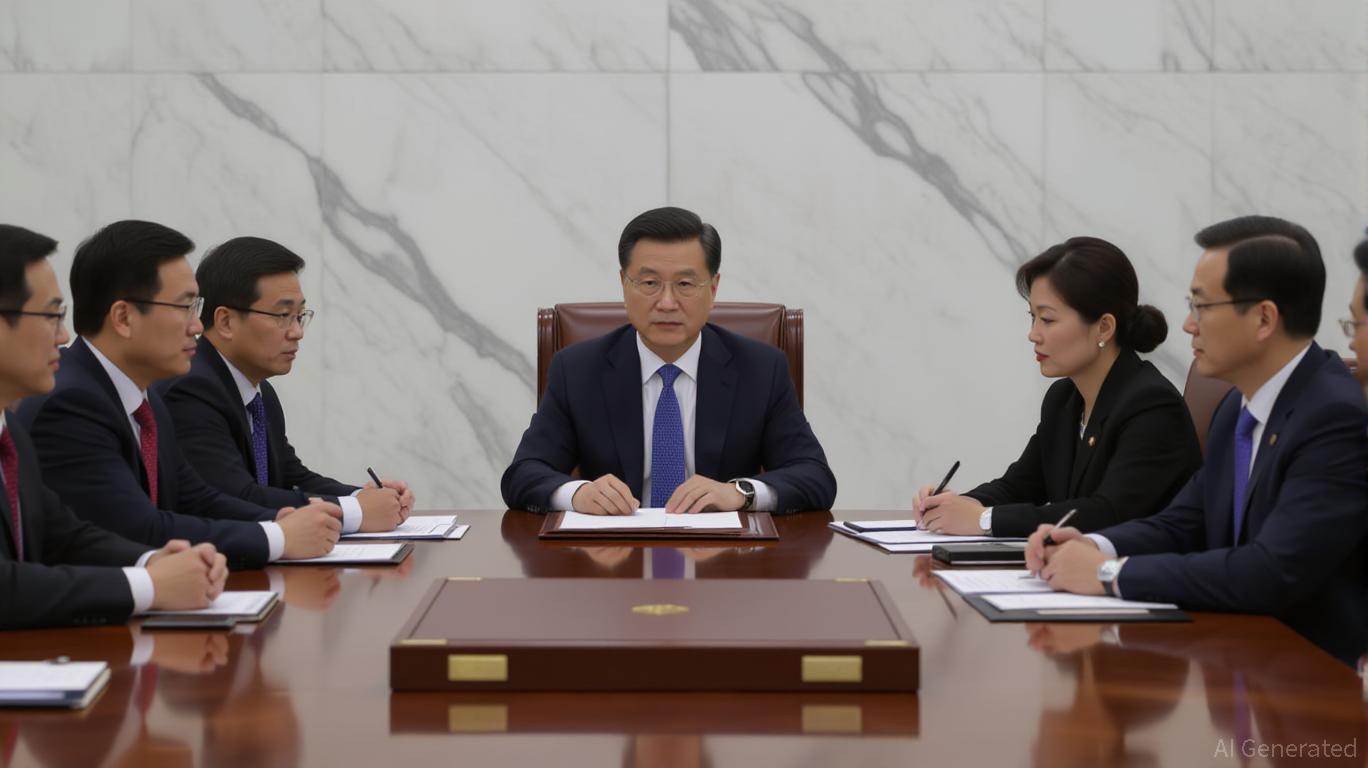
The detention of Liu Jianchao, a senior Chinese diplomat and potential future foreign minister, in late July 2025 has sent ripples through global markets. While Chinese authorities have not officially explained the circumstances, the incident underscores a critical question for investors: Is China’s foreign policy continuity at risk amid leadership instability? This development, coupled with the broader shift toward assertive “wolf warrior” diplomacy under Xi Jinping, demands a reevaluation of risk exposure in emerging markets and Sino-centric portfolios.
The Liu Jianchao Case: A Signal of Institutional Fragility
Liu’s detention follows a pattern of high-profile purges in China’s diplomatic corps, including the 2023 removal of former Foreign Minister Qin Gang. Unlike Qin’s case, which was linked to a public scandal, Liu’s situation lacks transparency, raising concerns about internal party dynamics and the potential for abrupt policy shifts. As head of the Communist Party’s International Department, Liu was instrumental in shaping China’s global engagement, including high-stakes negotiations with the U.S. and strategic partnerships under the Belt and Road Initiative (BRI). His absence could disrupt continuity in China’s foreign policy, particularly in managing complex relationships with the U.S., Europe, and key BRI partners.
Historically, China’s diplomatic leadership has been a stabilizing force, but the recent spate of investigations suggests a growing emphasis on internal discipline over external coherence. For investors, this signals increased geopolitical risk—a factor that has historically dented emerging market equities and commodities during periods of Chinese policy uncertainty.
The Wolf Warrior Era: Assertiveness and Its Consequences
Since Xi Jinping’s rise to power in 2012, China’s foreign policy has evolved from Deng Xiaoping’s “hide your strength, bide your time” doctrine to a more confrontational stance. This shift is evident in China’s assertive territorial claims in the South China Sea, its defense of North Korea and Iran, and its aggressive rhetoric in global forums. The “wolf warrior” style of diplomacy, characterized by public sparring with Western counterparts, has heightened tensions and created a climate of unpredictability.
Data from the MSCI Emerging Markets Index reveals a clear correlation between Chinese diplomatic assertiveness and market volatility. For instance, during the 2019 South China Sea standoff and the 2020 pandemic-related diplomatic clashes, the index experienced sharp corrections, with energy and infrastructure sectors—key BRI-linked industries—being disproportionately affected. Investors in Sino-centric portfolios, such as those tracking the CSI 300 or the iShares China Large-Cap ETF (FXI), have seen their returns eroded during these episodes.
Implications for Emerging Markets and Sino-Centric Portfolios
The Liu Jianchao case amplifies existing risks for investors in emerging markets. China’s diplomatic unpredictability could lead to:
1. Supply Chain Disruptions: BRI projects, which account for $1 trillion in investments across 130 countries, may face delays or cancellations if policy continuity is compromised.
2. Currency Volatility: Emerging market currencies, such as the Indonesian rupiah (IDR) and Philippine peso (PHP), are sensitive to Chinese policy shifts, as seen during the 2015 yuan devaluation crisis.
3. Resource Market Shocks: China’s strategic use of rare earth minerals and energy resources as diplomatic tools could trigger price swings in commodities like copper and lithium.
The 2010 rare-earth export cut to Japan, which caused a 30% spike in global rare earth prices, serves as a cautionary tale. Investors in mining and tech sectors must now factor in the likelihood of similar tactics being employed to assert geopolitical influence.
Strategic Recommendations for InvestorsDiversify Exposure: Reduce overreliance on China-centric assets by allocating to alternative emerging markets with stable governance, such as India and Vietnam. Hedge Geopolitical Risk: Use derivatives like currency forwards or commodity futures to mitigate exposure to Chinese policy-driven volatility. Monitor BRI Projects: Closely track the status of BRI-linked infrastructure projects in Southeast Asia and Africa, as delays could signal broader policy instability. Prioritize ESG Criteria: Invest in companies with strong environmental, social, and governance (ESG) profiles, which are less vulnerable to geopolitical shocks. Conclusion: Navigating the New Normal
Liu Jianchao’s detention is not an isolated incident but a symptom of deeper institutional fragility in China’s diplomatic apparatus. As the country continues to assert its global ambitions, investors must remain vigilant to the interplay between internal party politics and external policy coherence. The era of “wolf warrior” diplomacy has redefined the risk landscape for emerging markets, and those who adapt their strategies to this new reality will be better positioned to weather the storms ahead.
In a world where geopolitical risk is no longer a peripheral concern but a central investment factor, the ability to anticipate and respond to leadership shifts in China’s diplomatic corps will separate resilient portfolios from vulnerable ones.
